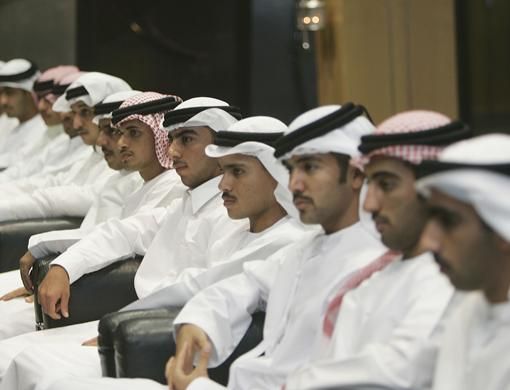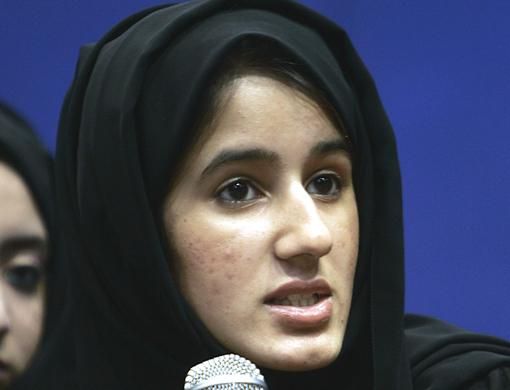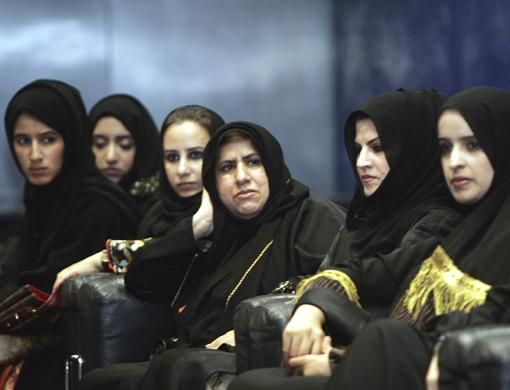In spite of a revamped curriculum across schools highlighting the UAE's culture and traditions, university students and officials feel more must be done to preserve the country's national identity.
A debate on enhancing national identity through education was held on a recent Monday evening at Zayed University (ZU) in Abu Dhabi. It highlighted the situation among the UAE's youth and analysed their future.
Hamad Al Beloushi, a ZU student, said that this year's summer activities saw participation from only 20 per cent of Emiratis. "Very few UAE citizens take part in summer activities. There's fear among our UAE children; the influence of the internet, media and television have isolated them from the real world. It's vital that their parents keep reminding them of their mother tongue and cultural beliefs," he said.
Safeya Mohammad, principal at Al Afak Ideal School, said her students sing the UAE national anthem every morning and are encouraged to maintain their cultural habits and traditions.
"Preserving one's culture is a wealth that must be engraved in children's hearts. When they grow up, their responsibilities grow up with them and that is when they can spread the feeling of nationalism to other kids around them. That's the stage academics should try to reach with their students. In our school we make a student repeat the national anthem several times until she/he gets it right," she said.
English vs. Arabic
Mohammad Al Murry, manager of business performance and continuous improvement at the Abu Dhabi Aircraft Technology Company, spoke about the influence of the English language among youngsters.
"More students are starting to speak English than Arabic now," he said. "Even in the streets, if you see an advertisement or company logo/name, it's written in big black English fonts with a small Arabic translation below it, if any! I know the UAE is trying to develop in a short period of time, but in the process, the youth must not pay the price for that speedy development. I am not against students learning different languages such as English, French and Japanese (which are important for today's economy). But not at the expense of forgetting one's mother tongue, which is Arabic, and which is the only language our ancestors knew 1,400 years ago."
ZU student Hessa Al Rumaithy posed a question to officials. "Why is it that we are proud of our children when they speak good English and do not feel the same way regarding the Arabic language? Why isn't Arabic equally important? We are lucky in Zayed University, because they involve us in different projects concerning our country's heritage and culture, but what about other students who don't have that privilege?" she asked.
In answer, Ali Mehad Al Suwaidi, Consultant at the Ministry of Education, said this situation is found only among a minority of Emirati families in the UAE. "What you are saying could be possible, but rare. Not a lot of Emirati families encourage their children to speak English as a first language; the emphasis is usually on Arabic. Even school curriculums target students to start relating to the culture they live in," Al Suwaidi said.
Dr Sulaiman Al Jasem, President of Zayed University, spoke about the country's demographic profile. "In 1968, there were fewer expatriates in the UAE and Emirati residents contributed 63 per cent of the population. By 2007, that percentage dramatically dropped to 20 per cent; by 2025 the percentage is expected to decrease to two per cent which leaves us in a catastrophic situation. That's why I am glad we are all brainstorming in today's session, to exchange as many ideas as possible about national identity, and to try to find a solution."
The Abu Dhabi Education Zone Director, Mohammad Salem Al Daheri, said a person's identity begins from the time he/she is a child. "It's like a seed which has to have a firm foundation in order to grow in the right direction. If you manage to teach your child a few steps while he's still crawling, he will grow up to believe in it and practise it. Same goes for national identity. If you are proud of who you are, it is reflected in what you do."
The almost two-and-a-half-hour discussion was brought to a close when officials realised how late it had become.
Academics felt the debate was a first step towards strengthening national identity.
Speaking to Notes, Al Jasem said: "This is the first time educators have gathered and shared ideas on strengthening national identity through education, but I assure you it won't be the last. Next time, I will make sure more students participate in the discussion."
He added that ZU would soon be opening its doors to expatriate students. "We hope that this step will help enhance the exchange of cultures and identities among students and help strengthen the country's national identity."
Preserve national identity
Students call for efforts to protect UAE culture and language





